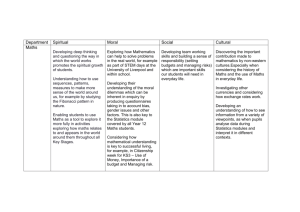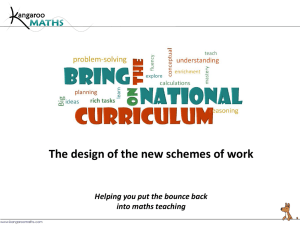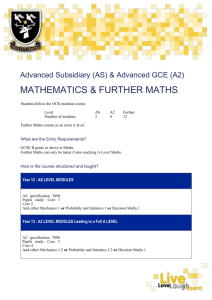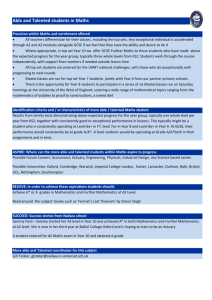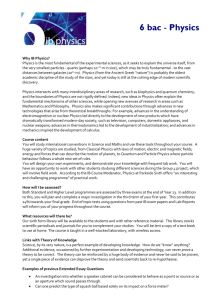The Maths Gene - Millennium Mathematics Project
advertisement
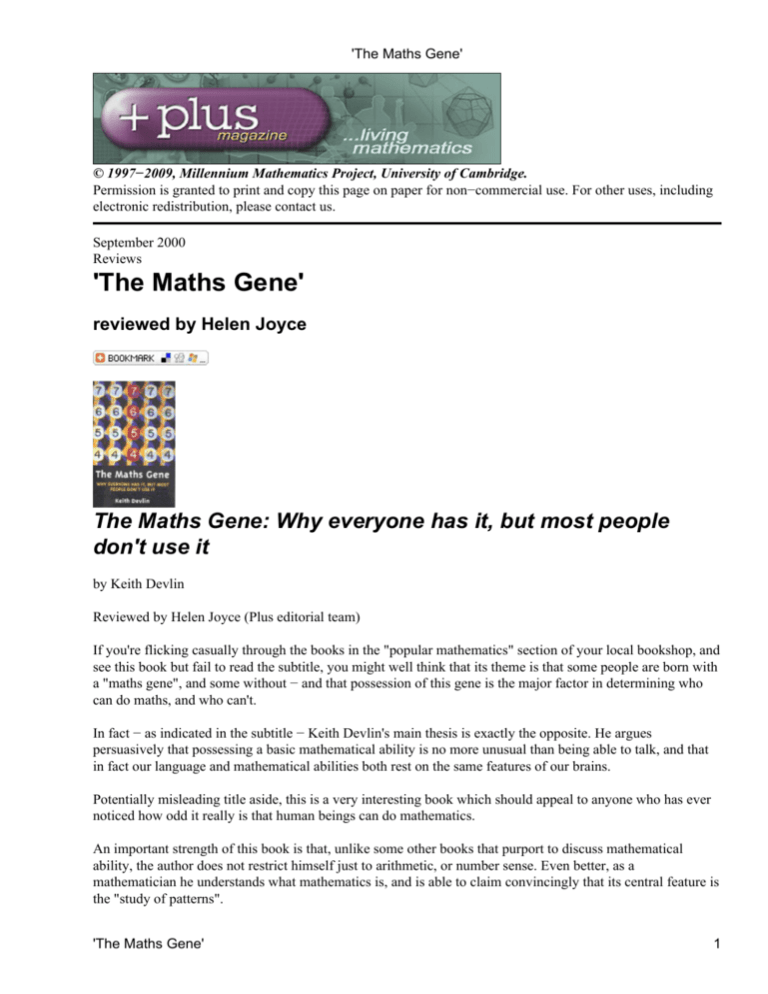
'The Maths Gene' © 1997−2009, Millennium Mathematics Project, University of Cambridge. Permission is granted to print and copy this page on paper for non−commercial use. For other uses, including electronic redistribution, please contact us. September 2000 Reviews 'The Maths Gene' reviewed by Helen Joyce The Maths Gene: Why everyone has it, but most people don't use it by Keith Devlin Reviewed by Helen Joyce (Plus editorial team) If you're flicking casually through the books in the "popular mathematics" section of your local bookshop, and see this book but fail to read the subtitle, you might well think that its theme is that some people are born with a "maths gene", and some without − and that possession of this gene is the major factor in determining who can do maths, and who can't. In fact − as indicated in the subtitle − Keith Devlin's main thesis is exactly the opposite. He argues persuasively that possessing a basic mathematical ability is no more unusual than being able to talk, and that in fact our language and mathematical abilities both rest on the same features of our brains. Potentially misleading title aside, this is a very interesting book which should appeal to anyone who has ever noticed how odd it really is that human beings can do mathematics. An important strength of this book is that, unlike some other books that purport to discuss mathematical ability, the author does not restrict himself just to arithmetic, or number sense. Even better, as a mathematician he understands what mathematics is, and is able to claim convincingly that its central feature is the "study of patterns". 'The Maths Gene' 1 'The Maths Gene' With this definition, the argument that our mathematical and language abilities rest on the same foundation begins to sound persuasive. The author claims that both depend crucially on the ability to think "off−line" − that is, about objects that are not immediately present and that may not in fact exist. Now that we humans have this faculty, what do we use it to think, and talk, about? In fact, we use it to gossip. You might think that the faculty of language is what sets us apart from the other animals, and you would be right, but apparently we mostly use this extraordinary faculty to discuss human relationships and such trivia as the plots of TV shows. At this point, Keith Devlin makes the startling claim that Mathematicians are people for whom mathematics is a soap opera. In other words, mathematicians are people who care sufficiently about what is going on in the abstract world of mathematics to want to know about the relationships, events and patterns in this world − to "gossip" about it, if you like. The faculty they use to gossip about this world is just the same as the faculty we all use to gossip about our fellow human beings − mathematicians are just the only ones who care enough to do so! It follows that mathematics is by its nature hard, since it requires us to apply faculties that were evolved for one purpose to another, more abstract purpose. Therefore, in order to be good at maths you need motivation. Without this motivation it is not possible to concentrate sufficiently hard to do maths at all, and this is why so many people think they don't have the "maths gene" of the 1title. A faculty for mathematics is generally regarded as so odd and rare that a lot of people will take considerable convincing to believe that it is in fact commonplace. You must admit that it doesn't look commonplace! But the author does a good job of persuading us, and therein lies the pleasure of this book − being told that mathematicians are normal after all, just more normal than everyone else... Book details: The Maths Gene: Why everyone has it, but most people don't use it Keith Devlin Paperback − 305 pages (2000) Weidenfeld and Nicolson ISBN: 0297645714 You can buy the book and help Plus at the same time by clicking on the link on the left to purchase from amazon.co.uk, and the link to the right to purchase from amazon.com. Plus will earn a small commission from your purchase. Plus is part of the family of activities in the Millennium Mathematics Project, which also includes the NRICH and MOTIVATE sites. 'The Maths Gene' 2

